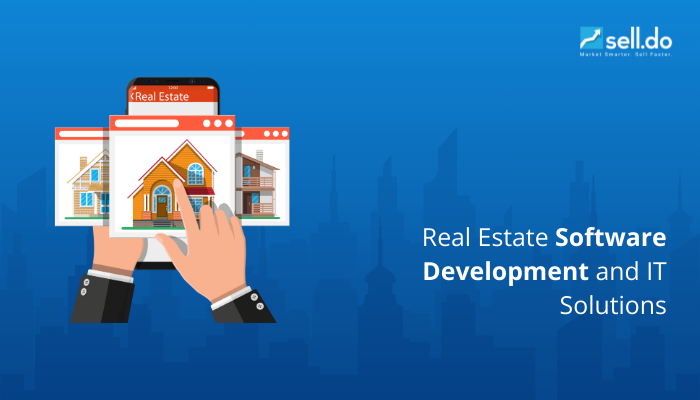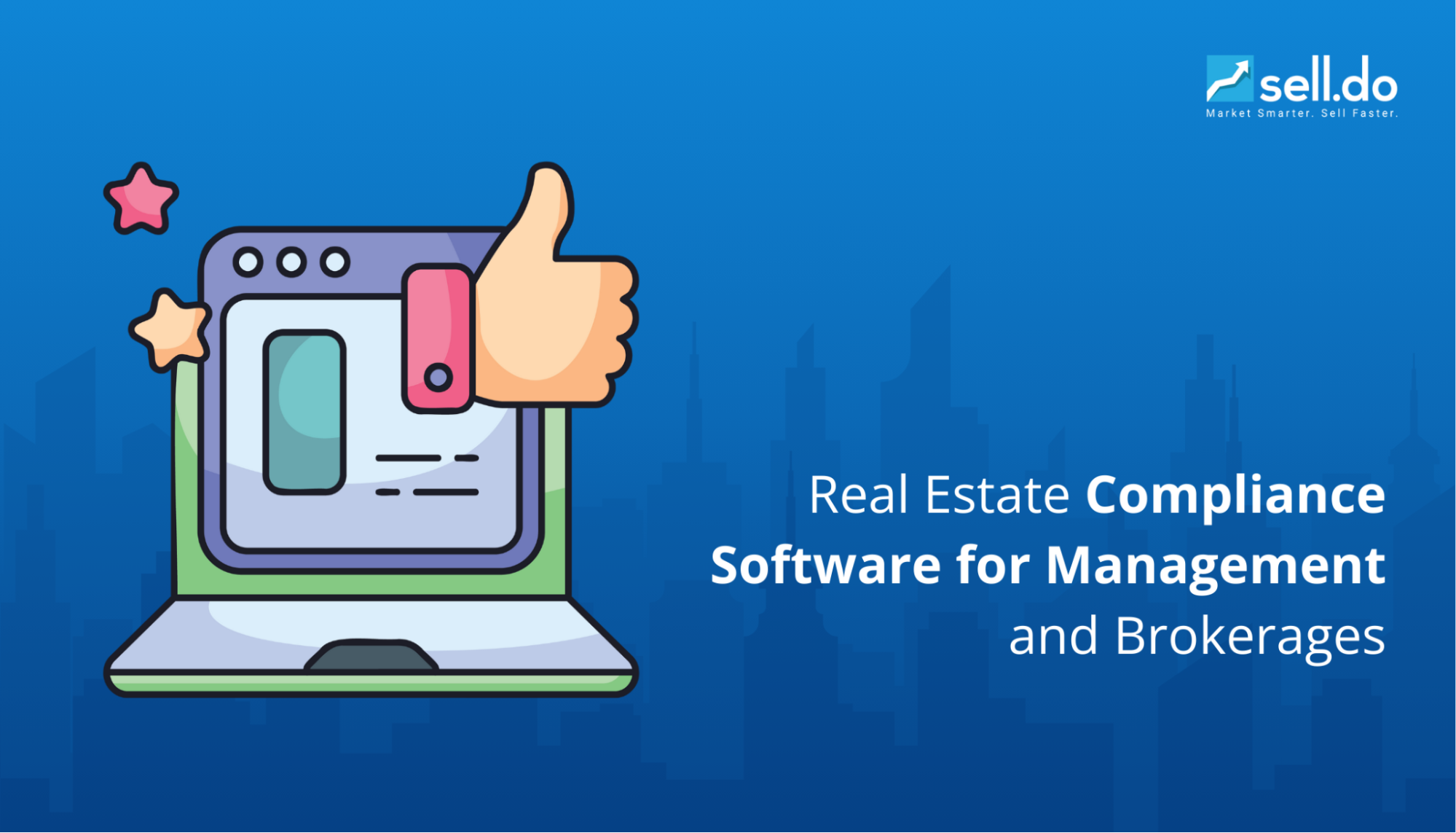The real estate industry is highly competitive, and businesses and professionals must know their target audience to succeed. Understanding your target audience is crucial to success in this industry.
Without this understanding, even the most profitable real estate business can quickly fall flat. Identifying real estate target audiences involves identifying the people or groups most likely to be interested in your services and developing strategies to reach and engage with them effectively.
In this article, we'll look at why it's so important to pinpoint the target audience, what benefits you can expect, and how to use it effectively in your marketing strategy using real estate CRM solutions.
What Is A Real Estate Target Audience & Why Does It Matter?
A real estate target audience refers to the specific group of individuals or businesses most likely to benefit from your services or properties. These could include first-time homebuyers, luxury property seekers, real estate investors, or even businesses looking for commercial spaces. Understanding this group helps you focus your marketing efforts where they’ll have the greatest impact.
Identifying a target audience is crucial in the real estate industry because the market is diverse, and not every offering suits every buyer. By defining your target audience, you can create more personalized and effective marketing strategies that resonate with potential clients and address their specific needs.
General Audiences vs. Specific Target Markets
A general audience includes anyone who might show interest in real estate, but this approach often results in wasted resources and low engagement. On the other hand, a specific target market narrows your focus to a particular group—such as young professionals looking for starter homes or retirees seeking downsized properties.
By zeroing in on specific target markets, you can:
- Design tailored campaigns that speak directly to your audience's preferences.
- Allocate resources more efficiently for a higher return on investment.
- Build stronger connections with clients by addressing their unique goals and challenges.
Understanding your real estate target audience is not just about reaching potential clients—it's about ensuring your message is meaningful, engaging, and leads to conversions.
You can also check our blog, 10 Strategies to Get Leads for Your Real Estate Business.
Why Target Marketing Works for Real Estate
Target marketing is highly effective in real estate because it focuses your efforts and resources on those most likely to engage with your services. By identifying your real estate target audience, you can create campaigns that address specific needs and challenges, resulting in stronger connections and higher conversion rates. Tailoring messages ensures your campaigns resonate, making them both memorable and impactful.
- Personalized strategies like virtual property tours appeal to tech-savvy buyers or long-distance investors.
- Consistent messaging builds trust and positions you as an expert in your niche, leading to referrals and loyalty.
- Analyzing audience behavior and adapting campaigns keep your efforts relevant and aligned with market trends.
Next, let’s explore the different types of real estate target audiences and how to connect with them effectively.
Here’s our curated list of the Top Real Estate Brokerage Tools for Agents and Brokers to help you optimize your workflow.
Types of Real Estate Target Audiences
Understanding your real estate target audience is key to crafting strategies that resonate. Let’s explore the main target audiences in real estate and how to engage them effectively:
First-Time Homebuyers
First-time homebuyers typically include younger individuals or couples, often in their late 20s or 30s, and are stepping into the housing market for the first time. They may have limited knowledge about the home-buying process, making them more reliant on guidance and support.
This audience often has concerns about financial aspects, such as down payments, mortgage rates, and government programs that provide first-time buyer benefits. Strategies to Engage First-Time Homebuyers
:- Provide educational resources, such as e-books or blogs, explaining the home-buying process.
- Highlight affordable properties and financing options tailored for first-time buyers.
- Offer workshops or webinars on mortgage basics and financial planning.
Move-Up Buyers
Move-up buyers are homeowners looking to upgrade to a larger or more expensive home. Their motivations often include a growing family, improved financial circumstances, or the desire to live in a more prestigious neighborhood. They value properties that offer enhanced space, better amenities, and prime locations. Strategies to Engage Move-Up Buyers:
- Showcase properties with larger spaces, better amenities, or premium locations that align with their desire for an upgrade.
- Provide information on bridging loans or trade-in programs to make the transition from their current home smoother.
Luxury Homebuyers
Luxury homebuyers are driven by a desire for exclusivity, quality, and properties in prestigious locations. This segment values features that cater to lifestyle aspirations, such as high-end finishes, smart home technology, and privacy. They are often experienced in real estate transactions and are selective about the properties they consider. Communicating with luxury buyers needs a refined approach that highlights the property’s unique value.
Strategies to Attract Luxury Homebuyers:
- Use high-quality visuals like professional photography and video tours to showcase properties.
- Highlight luxury amenities and unique selling points in your marketing materials.
- Offer private showings and exclusive events to create a sense of exclusivity.
Real Estate Investors
Real estate investors differ from traditional homebuyers as their primary focus is on financial returns. They evaluate properties based on rental income potential, market trends, and ROI. This audience may include individual investors, institutional buyers, or REITs (Real Estate Investment Trusts). Investors are highly data-driven and seek reliable information about property performance, market growth, and investment risks.
Strategies to Engage Real Estate Investors:
- Provide detailed property data, including rental yields and market forecasts.
- Share insights into emerging neighborhoods with high investment potential.
- Highlight tax benefits and long-term financial advantages of specific properties.
Vacation Home Buyers
Vacation home buyers seek second properties in desirable locations like tourist hotspots or areas with natural beauty. They prioritize homes with scenic views, proximity to attractions, and potential rental income opportunities.
Strategies to Engage Vacation Home Buyers:
- Promote Location Appeal: Highlight scenic views, proximity to tourist attractions, and outdoor recreational opportunities in the property’s area.
- Market Rental Potential: Emphasize the potential for generating rental income during off-seasons to add financial value to their investment.
- Provide Detailed Analytics: To appeal to their investment-focused mindset, offer data on property performance, market trends, and ROI potential.
- Highlight Customization Opportunities: Showcase how the property can be tailored for specific business needs, such as flexible layouts or industry-specific amenities.
- Focus on Lifestyle Benefits: Highlight low-maintenance homes, community amenities, or locations near family, healthcare, and recreational options.
- Promote Downsizing Perks: Emphasize the financial and practical advantages of downsizing, such as reduced expenses and simpler living arrangements.
- Customized Messaging: Create messages that speak directly to each audience segment. For example, highlight affordability and guidance for first-time buyers or exclusivity and premium features for luxury homebuyers.
- Selecting Appropriate Marketing Channels: Choose platforms where your audience is most active. Social media and email campaigns should be used for first-time buyers, while LinkedIn and property forums may work better for investors or commercial property owners.
- Content Marketing: Develop engaging content that addresses your audience’s needs, such as guides for first-time buyers, market trends for investors, or virtual tours for luxury and vacation homebuyers. Tailor your content to build trust and keep your audience informed.
- Performance Metrics: Track key metrics like lead quality, conversion rates, and ROI to measure the success of your marketing efforts. Regular analysis helps identify what’s working and where improvements are needed.
- Feedback Loops: Collect feedback from clients to understand their needs and experiences. Use this information to refine your messaging and improve your targeting approach for better results.
- Market Dynamics: Stay updated on market trends, buyer preferences, and industry changes. Adapting your strategies to align with evolving conditions ensures your marketing remains relevant and effective.
- Lead Management: Capture and prioritize leads from multiple channels seamlessly.
- Marketing Automation: Automate campaigns, track performance, and nurture leads effectively.
- Sales Automation: Streamline the sales pipeline and reduce manual efforts.
- Site Visit Scheduling: Simplify scheduling and tracking of property visits.
- Real-Time Analytics: Gain insights into key metrics like cost per lead, site visit, and closure.
- Mobile CRM: Manage leads and track progress anytime, anywhere with a mobile-friendly interface.
- Cloud-Based Access: Access data securely and collaborate efficiently from any location.
Commercial Property Owners
These buyers or businesses manage or own commercial spaces, including offices, retail outlets, or industrial properties. They may look to purchase or lease new properties to expand their portfolios or meet business needs.
Strategies to Engage Commercial Property Owners:
Empty Nesters
Empty nesters are older adults ready to downsize after their children move out. They often seek smaller, low-maintenance homes or properties in communities offering convenience, amenities, or lifestyle upgrades.
Strategies to Engage Empty Nesters:
Now that you know your real estate target audiences, let’s explore how to tailor marketing strategies to connect with them effectively.
Also, check our blog, Getting Started with Commercial Real Estate Investment: Pros and Cons.
Tailoring Marketing Strategies to Your Target Audience
Crafting a message that speaks directly to your audience is essential for building trust, addressing their needs, and increasing the likelihood of engagement and conversion. Here’s how you can do it:
Once your strategies are in place, the next step is to monitor their performance and adjust them to ensure effective and relevant results.
To use your analytics strategically, read our blog, Understanding CRM: Tracking Your Customers and Metrics.
Monitoring and Adapting Your Targeting Strategy
Continuously evaluating and refining your approach is crucial to ensure your marketing efforts remain impactful and aligned with your audience’s needs.
However, even the best marketing strategies require robust tools to manage leads, nurture prospects, and streamline your efforts—this is where Sell.Do comes in!
Recommended read: Real Estate Landing Page Examples That Inspire and Convert.
How Sell.Do Can Improve Your Real Estate Marketing Strategy?
Sell.Do is a real estate CRM built specifically for the industry. It bridges the gap between generating leads and converting them into lifelong customers. While targeting the right audience and tailoring your messaging are crucial, managing those connections effectively is what drives real results.
Sell.Do provides an all-in-one solution to organize, track, and enhance your marketing and sales processes.
Key Features of Sell.Do
By automating repetitive tasks, providing actionable insights, and simplifying communication, Sell.Do allows you to focus on what matters most—closing deals and growing your business. If you’re ready to take your marketing strategy to the next level, Sell.Do is your perfect partner.
Conclusion
Pinpointing your real estate target audience is crucial for crafting effective strategies that resonate with the right people. When you understand your audience’s needs, preferences, and pain points, you can create personalized marketing campaigns that foster trust and engagement. This not only helps you stand out in a competitive market but also increases your chances of converting leads into loyal customers, ultimately boosting your revenue.
A robust real estate CRM like Sell.Do can make all the difference in seamlessly managing and nurturing these connections. Designed specifically for the real estate industry, Sell.Do streamlines lead management, automates tasks, and provides actionable insights to enhance marketing and sales efforts.
So, what are you waiting for? Get a demo and explore Sell.Do today!






Leave a comment
Comments (0)
Be the first one to comment.